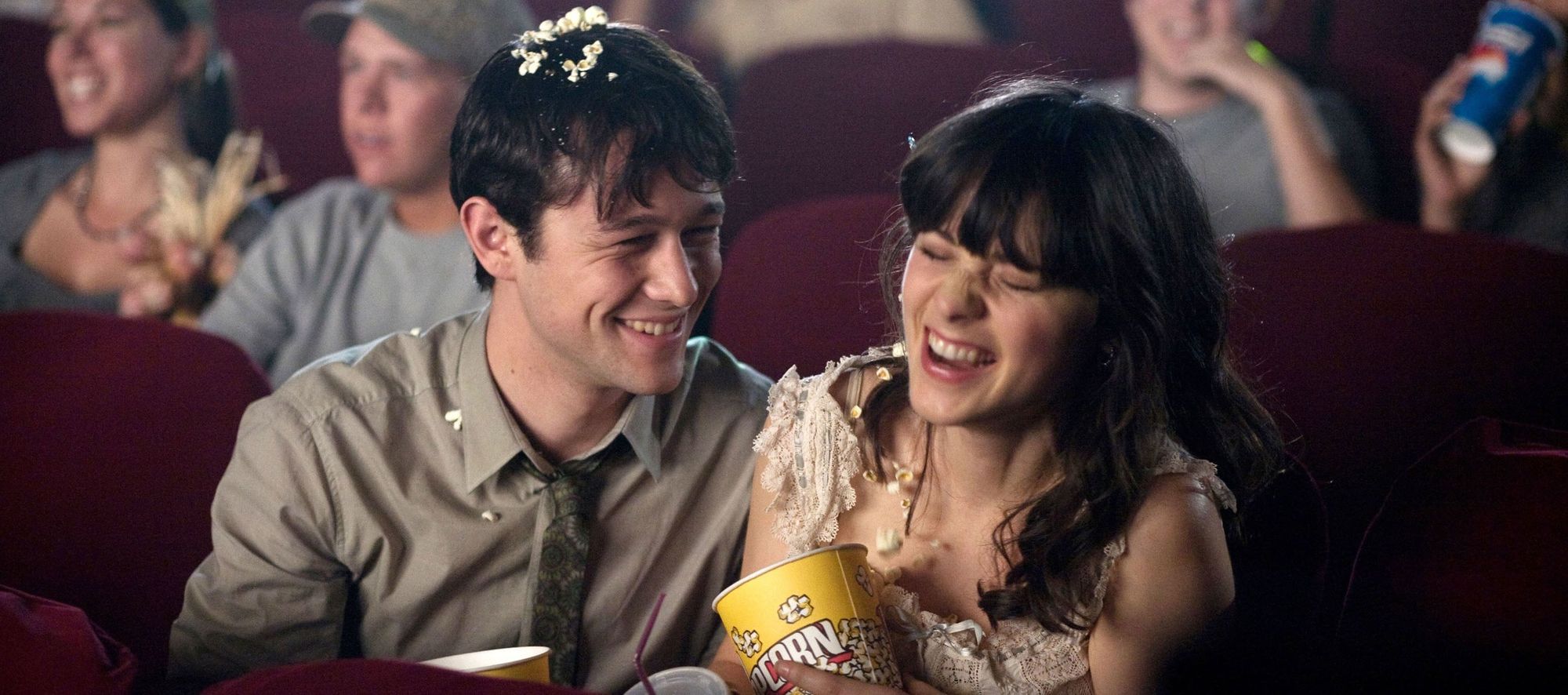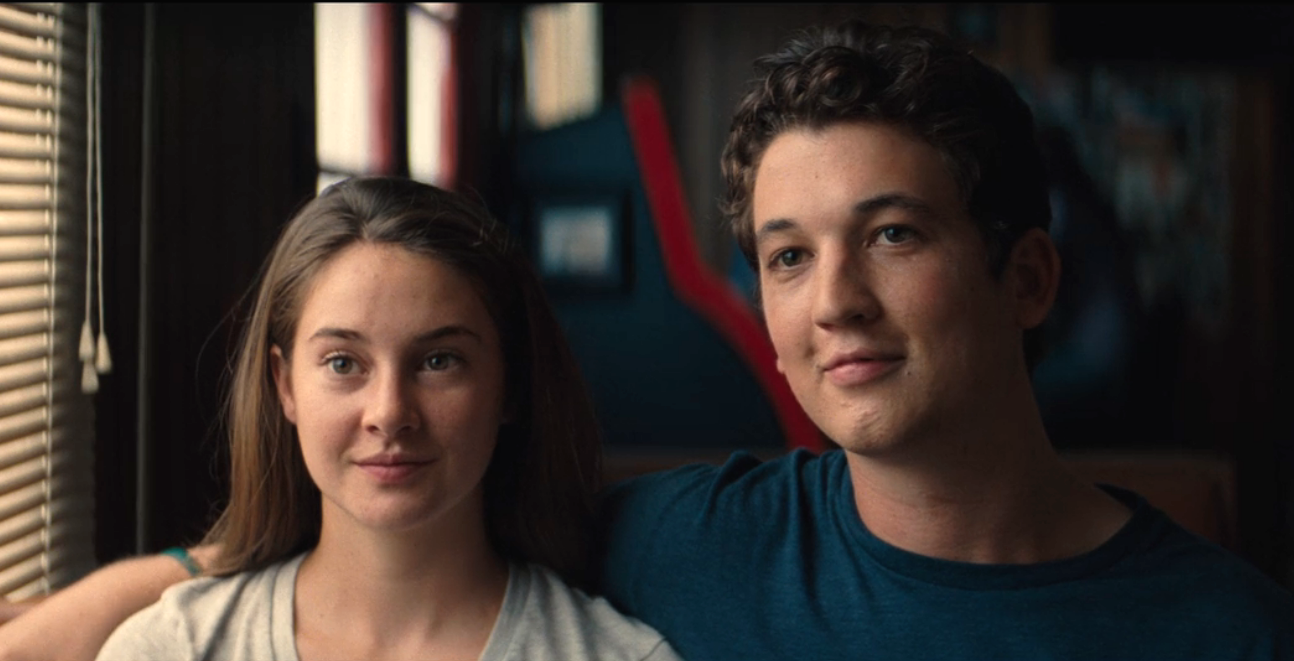
Scott Neustadter on the Script You "Can’t Not Write"
From the L.A. Screenwriter collection.
Occasionally I get to read a new screenwriting book before it hits the presses. Sometimes I get free passes to events. But far and away the best perk of this job is the chance to interview screenwriters I admire.
Scott and Michael also penned The Pink Panther 2 and The Fault in Our Stars.
(500) Days of Summer is one of my personal favorite films, and The Spectacular Now is one of the most compelling and charming high-school stories since The Breakfast Club, so you can imagine how thrilled I was when Scott kindly agreed to answer my questions.
In our interview, Scott discusses the challenges of turning a true story into a cinematic experience, how he and Michael sold their first script, and his search for the story he “can’t not write.”
L.A. Screenwriter (L.A.): (500) Days of Summer is famously based on one of your actual relationships. Can you talk a bit about walking the line of fact versus fiction when writing a true story? How do you balance realism against what will be most entertaining or cinematic?
Scott Neustadter (SN): The truth is that I didn’t really think any of it would be entertaining or cinematic. Not at first. Weber and I had wanted to write a relationship movie for a long time, we just didn’t have the relationship we wanted to write about. And then I had this real-life rollercoaster ride which I thought was dramatic enough for a couple of emails to send friends, but certainly not for a movie. And then I got lucky and hit upon this conceit of telling the story in a crazy non-linear fashion, which created a level of suspense that would not have been there otherwise. From there it was about being as real and authentic as I could get away with, because the point of the story was a dissection and a deconstruction of a specific relationship, so the realer the better.
L.A.: How many scripts did you and Michael write before you sold (500) Days of Summer? Was it your first spec sale?
SN: When we both worked at Tribeca in New York, we used to go up to the roof and try our hand at writing a script. We finished one very broad comedy that was a lot of fun, but not entirely representative of what I wanted to write. After that I moved to England, planning to get away from the movie business entirely, but wound up having this relationship and wanting to write about it. So 500 was the second script we wrote.
When I moved to L.A. after that, 500 was still too personal for me to feel good showing anyone. So, I didn’t. I tried to work in television and became an assistant, but I was so awful at it that I very quickly got fired and really had two choices—show this script around or move back home with my parents.
Luckily for us, people liked the script enough and started emailing it around and pretty soon some doors were opened, and it started like that. We got a handful of meetings with managers and agents. All of them asked if we had written anything else. (It’s tough to get representation if you’ve only ever written one thing.) And we had this other broad comedy so we showed them that.
It was that script (and not 500) which was submitted around town first, inaccurately announcing us as new broad comedy writers. Yikes! Producers and development people who read that script wanted to know what else we had, and of course, we couldn’t tell them we had this weird comedy/drama ‘boy meets girl meets Memento-esque script. So, we came up with another broad comedy idea and pitched that to everyone. (No one bit). Then we had a second idea, and it was that one which someone managed to sell as a pitch. After that, someone bought our other broad comedy idea and still no one had seen the script I really wanted to be known for!
So, now I insist that we go out with this “new” spec which was 500. And lots of people liked it, no one wanted to buy, so it sat there for months as people tried to figure out what the hell it was. Eventually two different producers managed to talk an exec at Searchlight to take a chance on it, and that’s basically what happened.
L.A.: How did you and Michael end up writing The Pink Panther 2? I ask because it seems so different from your typical aesthetic.
SN: In the period when 500 had been read but not optioned, we got a lot of meetings with studio executives. People really liked that script, they just didn’t know how to market it, etc. (One executive asked, “Is there any way you can rewrite it so that it’s not about a relationship?”)
In these meetings, studio execs often mention projects that they need writers for—broken scripts that need rewriting, books that need adapting, sequels they may or may not be making, that kind of thing. And the Sony exec said to us the only project she was looking for a writer on was the Pink Panther sequel.
I hadn’t seen the first one and I was definitely not wanting to be in the broad comedy business so I politely declined. And on the drive home, our (relatively new) agent said, “What’s wrong with you?! This is not a hobby. You want to be a professional, you can’t just write what you want to write all the time.” So I hung up the phone, came up with an idea for the sequel (still in the car), pitched it the next week, and a month later they greenlit the movie! (The movie doesn’t really bear much resemblance to the script we wrote, but the storyline is the same as the one I came up with in the car.)

L.A.: When working with an established character like the Pink Panther or a novel like The Spectacular Now, what is your method for assuming the voice and style that’s been laid out for you? Do you strive to remain true to what’s been done before, or do you find ways to make the characters your own?
SN: I think you have to try and do both. Knowing that there’s a fan base means you have to play by certain rules. You don’t want to disappoint people who love these characters.
L.A.: The characters in The Spectacular Now are all incredibly well written. I didn’t feel like there was a single character, no matter how minor, who didn’t have a unique voice and a fully developed personality. The father, the sister, Marcus, the boss, even the people at Sutter’s local bar—they all felt like fully developed people. I guess my short question is, how did you do that??
SN: Well, thank you. Most of the heavy lifting was done in the novel. Tim Tharp is an awesome writer and these characters fly off the page. Our job was to make sure that liveliness translated to the screenplay.
L.A.: I was also blown away by the dialogue and actions of the high school characters in particular. So many other films about high school feature characters that either act too maturely, or worse, are undeveloped caricatures. How did you capture the voice of high school with such honesty?
SN: Definitely again all credit should go to Mr. Tharp. The most important thing he did (and we tried to convey) was the timelessness of these kids. They’re 17 and it doesn’t matter if it’s modern day, 20 years ago, or 50 years ago—their emotions, relationships, personal and interpersonal issues are completely relatable.
L.A.: Do you prefer writing adaptations/working on assignment or creating your own stories?
SN: I wish I was one of those people who had a great original idea every day. As Weber will tell you, I’m extremely hard on our ideas. I reject everything. I’m a nightmare. So until we have an idea we can’t not write, I’ve found it’s been really fun and rewarding to do these book adaptations. Plus, I think I personally am way, way better at it than writing original material where I always over-think and over-reject and wind up deleting every line we write. Adapting material is a very left-brain endeavor, and I’m far more logical than I am colorful. (Even 500 Days of Summer is basically math.)
L.A.: One last question: What’s the one piece of advice you wish someone had given you when you were getting your start in this industry?
SN: Don’t be intimidated. If you love movies and you look up to writers, you are bound to think you can never achieve those lofty heights. And maybe it’s true and you can’t, but it doesn’t matter. You’re not trying to top your heroes. (How could you?!) You’re just trying to write something you would go see. Set the bar there and it gets a lot easier!
*Feature Photo: Joseph Gordon-Levitt and Zooey Deschanel in 500 Days of Summer / Fox Searchlight Pictures (2009)